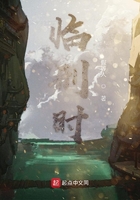And again she saw the long and luminous pathway of the tunnel, flickering with light and shade, carpeted with the pale reflections of the leaves and narrow branches of the trees, the black figure of the priest far down it, and the tall form of the stranger in an attitude of painful hesitation. Each time she had seen him, apparently desirous of doing something definite, hesitation had overtaken him. In his indecision there was something horrible to her, something alarming.
She wished he was not standing behind her, and her discomfort increased. She could still hear the voices of the soldiers in the cafe. Perhaps he was listening to them. They sounded louder.
The speakers were getting up from their seats. There was a jingling of spurs, a tramp of feet, and the voices died away. The church bell chimed again. As it did so Domini heard heavy and uneven steps cross the verandah hurriedly. An instant later she heard a window shut sharply.
"Suzanne!" she called.
Her maid appeared, yawning, with various parcels in her hands.
"Yes, Mademoiselle."
"I sha'n't go down to the /salle-a-manger/ to-night. Tell them to give me some dinner in my /salon/."
"Yes, Mademoiselle."
"You did not see who was on the verandah just now?"
The maid looked surprised.
"I was in Mademoiselle's room."
"Yes. How near the church is."
"Mademoiselle will have no difficulty in getting to Mass. She will not be obliged to go among all the Arabs."
Domini smiled.
"I have come here to be among the Arabs, Suzanne."
"The porter of the omnibus tells me they are dirty and very dangerous.
They carry knives, and their clothes are full of fleas."
"You will feel quite differently about them in the morning. Don't forget about dinner."
"I will speak about it at once, Mademoiselle."
Suzanne disappeared, walking as one who suspects an ambush.
After dinner Domini went again to the verandah. She found Batouch there. He had now folded a snow-white turban round his head, and looked like a young high priest of some ornate religion. He suggested that Domini should come out with him to visit the Rue des Ouled Nails and see the strange dances of the Sahara. But she declined.
"Not to-night, Batouch. I must go to bed. I haven't slept for two nights."
"But I do not sleep, Madame. In the night I compose verses. My brain is alive. My heart is on fire."
"Yes, but I am not a poet. Besides, I may be here for a long time. I shall have many evenings to see the dances."
The poet looked displeased.
"The gentleman is going," he said. "Hadj is at the door waiting for him now. But Hadj is afraid when he enters the street of the dancers."
"Why?"
"There is a girl there who wishes to kill him. Her name is Aishoush.
She was sent away from Beni-Mora for six months, but she has come back, and after all this time she still wishes to kill Hadj."
"What has he done to her?"
"He has not loved her. Yes, Hadj is afraid, but he will go with the gentleman because he must earn money to buy a costume for the /fete/ of Ramadan. I also wish to buy a new costume."















